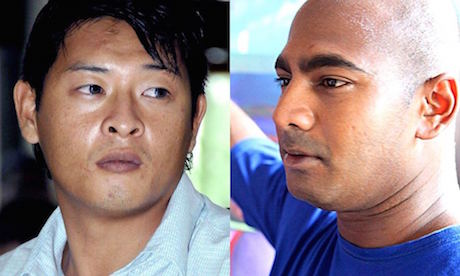The Catholic archbishop of Port Moresby, John Ribat, says this week’s executions in Indonesia underline why Papua New Guinea should not go ahead with reactivating the death penalty.
In an interview on Radio Australia he said that he hoped that the circumstances surrounding the executions in Indonesia will bring “more light to our into our leadership.”
In 2013 Ribat spoke about the church’s opposition to the death penalty at a press conference in Port Moresby.
He acknowledged the immense pressure on the Government to curb law and order problems and its moves to introduce maximum penalties to crack down on the country’s serious law and order problems.
Speaking on behalf of the other churches, he said the church would live by its principles.
“No life will be taken. We do not have the right to do that but we do have the right to better a person’s life,” the Archbishop said.
Ribat said there was moral breakdown in PNG society and called on the Government to work with churches to address the serious law and order problems by properly funding and strengthening the law enforcing systems from the top right down to the local level governments and get perpetrators to answer for their crimes.
He said the judicial system needed to be strong and firm in addressing serious law and orders problems.
Bishop Aronold Orowae, the president of the Catholic Bishops Conference of Papua New Guinea and the Solomon Islands, has issued a letter laying out the reasons behind the Bishops’ opposition to the re introduction of the death penalty.
Capital punishment has not been carried out in PNG for more than 50 years, but was re-activated two years ago when the law was amended to include more offences.
Since then, 13 people have been waiting on death row, but lack of infrastructure has meant there has been no method to enact the capital punishment.
Both Indonesia and Thailand have made offers of financial assistance and expertise.
Source
